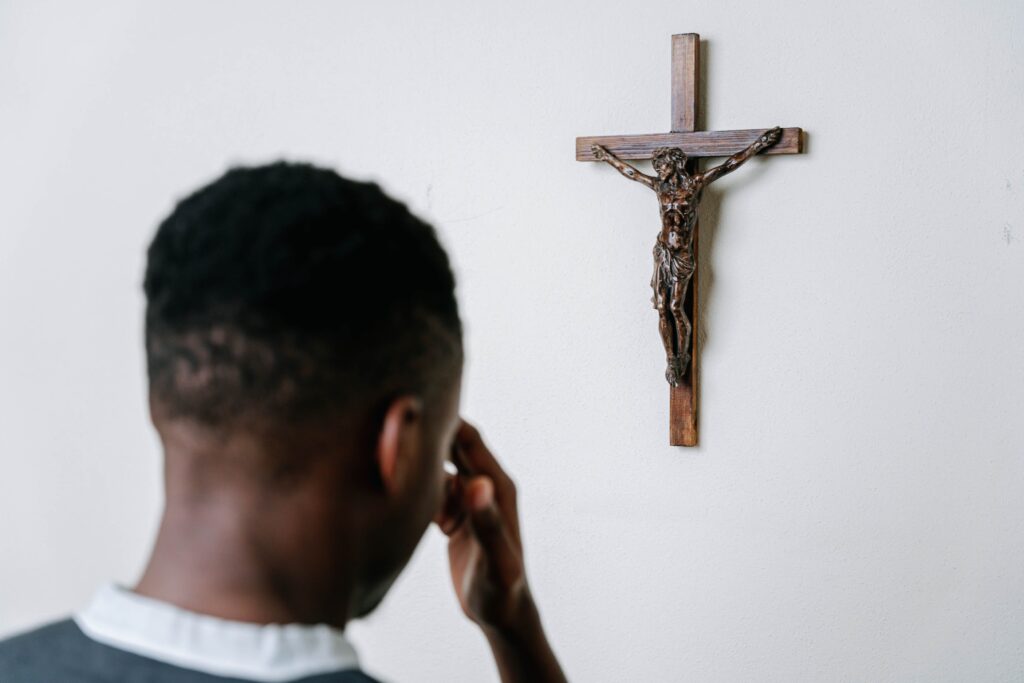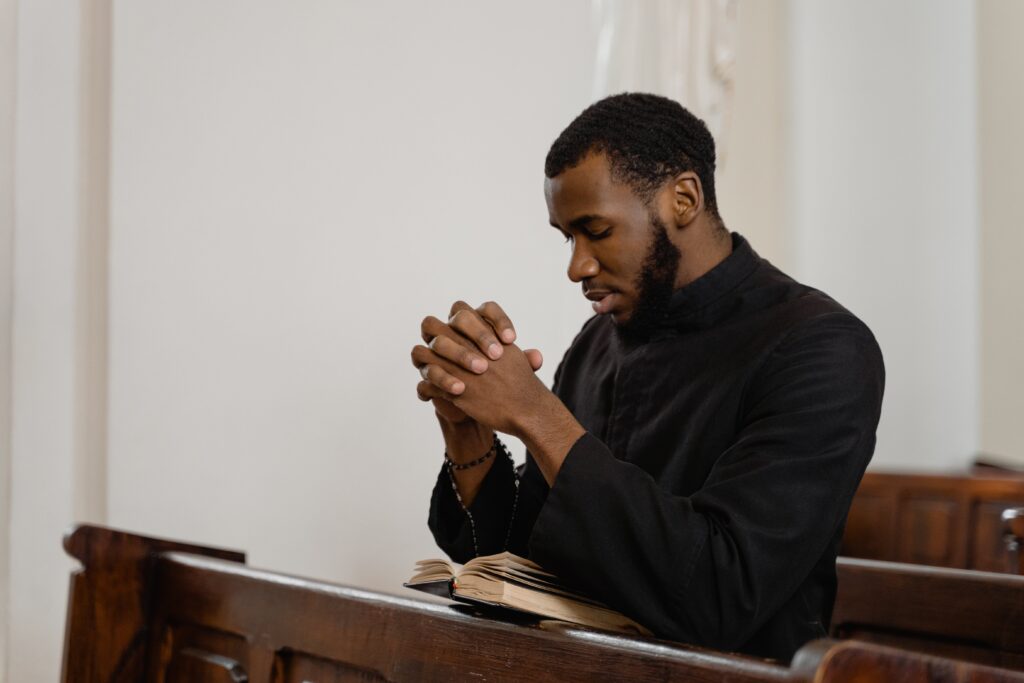LGBTQ Christians report more minority stressors: New study
Pope Francis has now permitted Catholic priests to offer same-sex couples blessings—good news for LGBTQ people who identify as Christian. But according to a new study from The Williams Institute, LGBTQ Christians report more internalized homophobia and transphobia.
A new study by the Williams Institute at UCLA School of Law and Utah State University finds that among LGBTQ people who were raised Christian, those who are older, Black, cisgender men, and/or live in the South are more likely to continue to identify as Christian as adults.
LGBTQ people who were never Christian reported coming out to family and friends at younger ages than those who were raised Christian. More people who stayed Christian had a history of conversion therapy than those who left Christianity or who were never Christian.
Using data from the nationally representative Generations and TransPop studies, researchers examined Christian religious identification and de-identification among LGBTQ adults and how it correlates with psychological distress in adulthood.
Almost two-thirds of LGBTQ people who were raised Christian no longer identify as Christian. Results show that LGBTQ people who left Christianity were bullied in childhood more frequently than people who stayed Christian. People who identified as Christian as adults reported more internalized homophobia/transphobia.
Black LGBTQ people were more likely than White LGBTQ people to be raised Christian and less likely to leave Christianity. Of the 87% of Black LGBTQ people who were raised Christian, over half (54%) stayed Christian.
“Some LGBTQ people, for example, Black LGBTQ people, maintain their connection to Christianity despite minority stressors because the social, cultural, and religious support outweighs the negative experiences,” said co-author Ilan Meyer, Distinguished Senior Scholar of Public Policy at the Williams Institute. “For other LGBTQ people, the heightened experience of minority stressors within Christian environments may contribute more to stigma than support, leading them to distance themselves from their religious faith and communities, sometimes seeking LGBTQ-affirming religious or spiritual environments.”

As adults, people who stayed Christian and those who left Christianity or never were Christian did not differ in health indicators, including psychological distress or social well-being. The groups also had similar degrees of resilience, measured as outness to family and friends, a sense of connectedness to the LGBT community, and levels of social support.
However, when LGB and transgender people were assessed separately, LGB people who were never Christian experienced higher psychological distress than LGB people who stayed Christian, suggesting that religiosity may have a protective effect. Transgender people who were never Christian experienced discrimination less often than transgender people who were raised Christian.
“The finding that LGBTQ people are likely to have been raised in a religious background, regardless of their current identification, may be particularly helpful to therapists with LGBTQ clients,” said lead author Tyler Lefevor of Utah State University. “Therapists may want to encourage clients to articulate the pieces they find valuable about religion (e.g., believing, bonding, behaving, belonging) and either grieve or strive to maintain these aspects.”
The report, “Correlates of Christian Religious Identification and De-identification among Sexual and Gender Minorities: A U.S. Probability Sample,” appeared in Psychology of Sexual Orientation and Gender Diversity and is co-authored by G. Tyler Lefevor, Lauren J. A. Bouton, Edward B. Davis, Samuel J. Skidmore, and Ilan H. Meyer.
This report relies on research from the Generations study, supported by the Eunice Kennedy Shriver National Institute of Child Health and Human Development (NICHD) of the National Institutes of Health (R01HD078526). It also draws on research from the TransPop study, supported by the Eunice Kennedy Shriver National Institute of Child Health and Human Development (NICHD grant R01HD090468) and through Supplement to grant R01HD078526 from the National Institutes of Health, Office of Behavioral and Social Sciences Research and the Office of Research on Women’s Health. The content is solely the responsibility of the authors and does not necessarily represent the official views of the National Institutes of Health.
- Source: The Williams Institute






